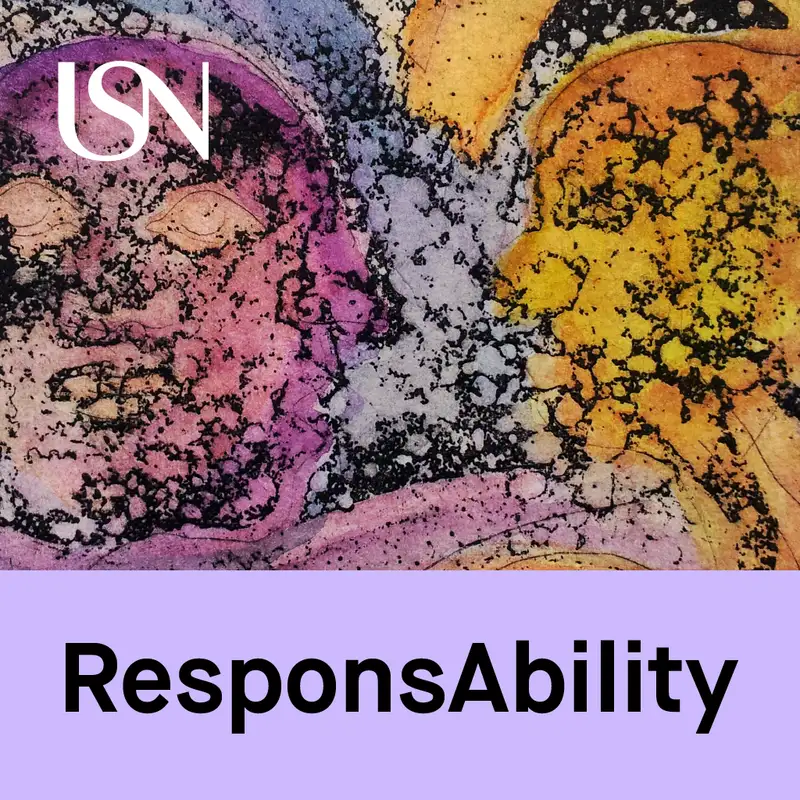#16 Alfried Längle & Eva Maria Waibel | Existential Pedagogy and Existential Analysis
In this episode of the ResponsAbility Podcast, we are joined by Prof. Dr. Alfried Längle and Prof. Mag. Dr. Eva Maria Waibel—two leading voices in existential therapy and pedagogy. Alfried Längle, a close collaborator of Viktor Frankl and founder of the International Society for Logotherapy and Existential Analysis, shares his insights into the foundations of existential psychotherapy, focusing on meaning, freedom, and the four fundamental motivations that guide human life. Eva Maria Waibel, a seasoned educator and psychotherapist, brings these existential principles into the field of education, emphasizing the formation of the whole person through presence, relationship, and ethical responsibility.
Together, they explore how both therapy and education can support people in navigating suffering, disconnection, and the challenges of modern life—not by offering easy answers, but by cultivating the courage to face difficult questions and stay connected to oneself and others. This episode offers a hopeful reflection on what it means to teach, learn, and live with meaning and care.
00:01:24 - About the Third Viennese School of Psychotherapy
00:06:17 - What distinguishes Alried Längle's form of existential analysis from Viktor Frankl's?
00:08:38 - What is Existential Pedagogy and what does it look like in practice?
00:16:05 - How can you work to educate children and youth in ways that can give them meaning in their lives?
00:17:41 - How to understand spirituality in the context of Existential Analysis and Existential Pedagogy?
00:23:50 - How to work with not only spirituality but also with responsibility in educational settings?
00:33:47 - What does conscience mean in the context of Existential Analysis and Existential Pedagogy?
00:35:58 - What can Existential Pedagogy contribute to the development of so-called Life Skills?
Literature:
00:01:24 - About the Third Viennese School of Psychotherapy
00:06:17 - What distinguishes Alried Längle's form of existential analysis from Viktor Frankl's?
00:08:38 - What is Existential Pedagogy and what does it look like in practice?
00:16:05 - How can you work to educate children and youth in ways that can give them meaning in their lives?
00:17:41 - How to understand spirituality in the context of Existential Analysis and Existential Pedagogy?
00:23:50 - How to work with not only spirituality but also with responsibility in educational settings?
00:33:47 - What does conscience mean in the context of Existential Analysis and Existential Pedagogy?
00:35:58 - What can Existential Pedagogy contribute to the development of so-called Life Skills?
Literature:
- Längle, A. (2024): The Art of Involving the Person: The Existential Fundamental Motivations as Structure of Motivational Process. In: A. Cantú, E. Maisel, & C. Ruby (Eds.), Theoretical Alternatives to the Psychiatric Model of Mental Disorder Labeling: Contemporary Frameworks, Taxonomies, and Models (pp. 487–503). Cambridge (UK): The Ethics International Press. ISBN (Hardback): 978-1-80441-276-3
- Längle A. & Klaassen, D. (2019): Phenomenology and Depth in Existential Psychotherapy. In: J Humanistic Psychology https://journals.sagepub.com/eprint/pJdypyZFmIK2F6mvBgyJ/full
- Längle, A. (2014): From Viktor Frankl’s Logotherapy to Existential Analytic psychotherapy. In: European Psychotherapy 12, 67-83.
- Längle, A. (2012): The Viennese School of Existential Analysis. The Search for Meaning and Affirmation of Life. In: Barnett L, Madison G (Eds.): Existential therapy: Legacy, vibrancy, and dialogue. New York: Routledge, 2ß12, 159-170.
- Siller, H. & Waibel, E. M. (2018): Not pure harmony, but less of a power struggle – What do teachers and pedagogues think about Existential Pedagogy? In: The Teacher Educator, Volume 53/2018, Issue 1, pp. 44 – 66.
- Waibel, E. M. (2017): Self-Worth and Meaning-Oriented Education, In: Etherington, Matthew (Ed.). What Teachers Need to Know. Topics of Inclusion. Wipf & Stock: Eugene, OR (USA), pp. 66 – 81
- Waibel, E. M. (2012): Erziehung zu Selbstwert und Sinn – Self-Worth and Meaning-Oriented Education, In: Rabensteiner, Pia-Maria und Ropo Eero (Hrsg.): Life and Responsibility in European Education. Euopean Dimension in Education and Teaching. Vol. 5. Hohengehren: Schneider, S. 103 – 131
